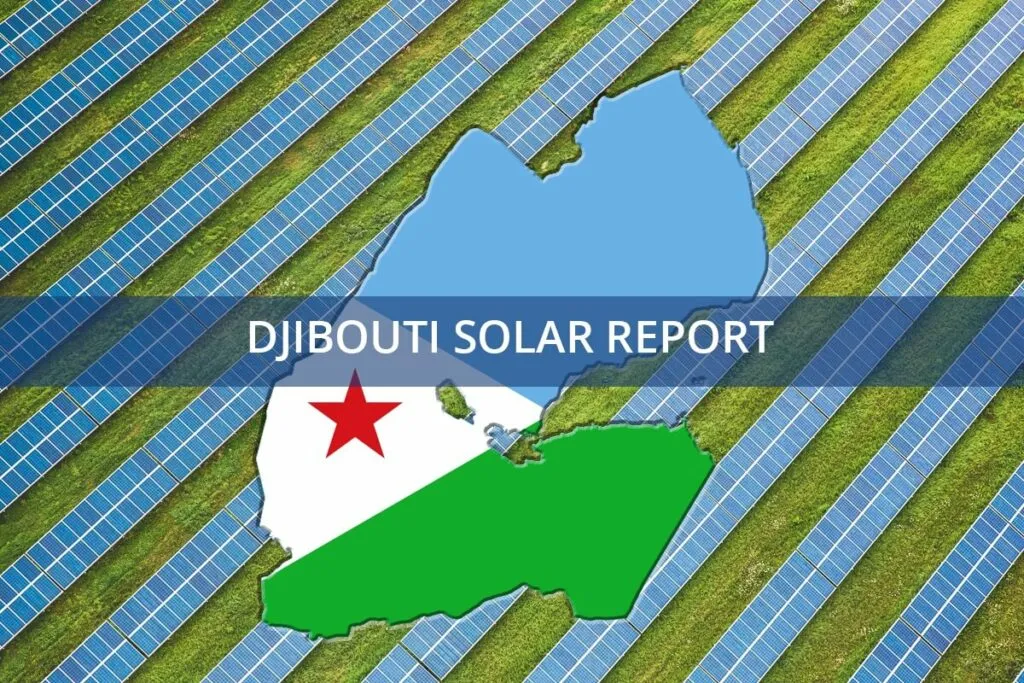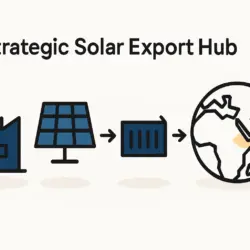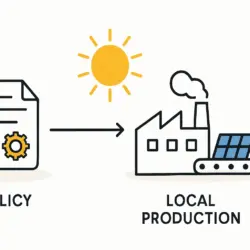Recent 2025 Solar Panel press releases from industry leaders make no mention of Djibouti in connection with new projects or partnerships. This suggests the country is not yet part of major initiatives in the solar sector, potentially missing out on key economic and environmental benefits.
Djibouti Solar Panels: Untapped Potential in Renewable Energy
Djibouti boasts abundant sunlight, making it a prime location for solar energy development. However, its absence from the latest press releases suggests the country isn’t yet on the radar of global solar power companies. This could be due to several factors, such as a small market size, limited infrastructure, or an emerging renewable energy sector.
Despite this, there are clear signs of burgeoning opportunities. A report by AMEA Power notes that Djibouti is actively pursuing renewable energy projects and recently commissioned a 50-megawatt solar photovoltaic (PV) park.
The press releases highlight several key trends: the integration of artificial intelligence (AI) in solar panel production, the expansion of solar panel manufacturing facilities, and the development of high-efficiency solar panels. These advancements are expected to drive significant growth in the global solar panel market, but for now, Djibouti does not appear to be part of these developments.
Djibouti Solar Panels and the Future of Energy Independence
Djibouti’s solar energy potential is significant. The country receives an average solar radiation of 5.5 to 6.5 kWh per square meter per day—among the highest in the world—making it an ideal location for solar power generation.
Despite this potential, the nation’s renewable energy sector is still in its early stages. Large-scale solar projects are not yet common, and the majority of its energy needs are still met with imported fossil fuels.
The Djiboutian government recognizes solar energy’s potential as a key driver for economic growth and energy security. In fact, the country’s Vision 2035 plan aims to generate 100% of its electricity from renewable sources by that year. Achieving this ambitious goal, however, will require significant investment and a robust regulatory framework to encourage private sector participation.
Opportunities and Challenges for Djibouti Solar Panels
Djibouti’s strategic location at the crossroads of Africa and the Middle East, combined with its abundant sunshine, gives it significant potential to become a solar energy hub. Developing this sector could make the country an attractive destination for investment, reduce its dependence on imported fossil fuels, create jobs, and boost economic growth.
However, several challenges must be addressed to unlock Djibouti’s solar potential. These include:
- Infrastructure: Djibouti’s electricity grid has limited size and coverage, making it difficult to integrate large-scale solar power projects. The country’s grid infrastructure will need significant upgrades to accommodate a growing share of renewable energy.
- Regulatory Framework: A clear and transparent regulatory framework is essential for attracting private sector investment. The government must develop policies and incentives that encourage the development of solar energy projects.
- Financing: Solar energy projects require significant upfront investment. Djibouti will need to secure both domestic and international financing to support the growth of its solar sector.
Advancing Djibouti Solar Panels for a Sustainable Future
To attract global solar power companies and investors, Djibouti can take several key steps. First, the government should develop a comprehensive renewable energy strategy outlining the country’s goals and priorities for the solar sector. This plan should include specific targets for power generation and a clear roadmap for achieving them.
Djibouti should also work to improve its investment climate by streamlining the regulatory process and offering incentives for solar projects. This could involve tax breaks, subsidies, or other financial incentives for companies investing in the sector.
Finally, the government should prioritize developing the infrastructure needed to support a growing solar energy sector. This includes upgrading the country’s electricity grid, improving road and transportation networks, and building out storage solutions to ensure a stable electricity supply.



